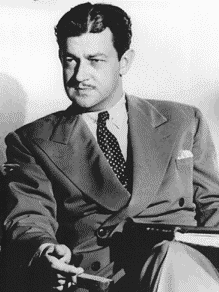A Quote by Edward Bulwer-Lytton, 1st Baron Lytton
Bright and illustrious illusions! Who can blame, who laugh at the boy, who not admire and commend him, for that desire of a fame outlasting the Pyramids by which he insensibly learns to live in a life beyond the present, and nourish dreams of a good unattainable by the senses?
Related Quotes
What is required is the finding of that Immovable Point within one's self, which is not shaken by any of those tempests which the Buddhists call 'the eight karmic winds': 1-fear of pain, 2-desire for pleasure; 3-fear of loss; 4-desire for gain; 5-fear of blame, 6-desire for praise; 7-fear of disgrace; [and] 8-desire for fame.
The concept of guilt is found most powerfully developed even in the most primitive communal forms which we know... the man is guilty who violates one of the original laws which dominate the society and which are mostly derived from a divine founder; the boy who is accepted into the tribal community and learns its laws, which bind him thenceforth, learns to promise; this promise is often given under the sign of death, which is symbolically carried out on the boy, with a symbolical rebirth.
As we live through thousands of dreams in our present life, so is our present life only one of many thousands of such lives which we enter from the other more real life and then return after death. Our life is but one of the dreams of that more real life, and so it is endlessly, until the very last one, the very real the life of God.
There is a thinking in primordial images, in symbols which are older than the historical man, which are inborn in him from the earliest times, eternally living, outlasting all generations, still make up the groundwork of the human psyche. It is only possible to live the fullest life when we are in harmony with these symbols; wisdom is a return to them.
Nothing goes on forever. I think that's one of the illusions of life. When I talk about my life being an extension of my dreams and fantasies, there's a tendency to think of them as immature. I live in a mature world. The majority of the people in this society live with delusions and illusions much more irrational and hurtful than mine. They deal with mortality, with fantasies relating to heaven and hell, and they don't really deal with their problems at all.
Children learn what they live.
If a child lives with criticism... he learns to condemn.
If he lives with hostility... he learns to fight.
If he lives with ridicule... he learns to be shy.
If he lives with shame... he learns to be guilty.
If he lives with tolerance... he learns confidence.
If he lives with praise... he learns to appreciate.
If he lives with fairness... he learns about justice
That hour in the life of a man when first the help of humanity fails him, and he learns that in his obscurity and indigence humanity holds him a dog and no man: that hour is a hard one, but not the hardest. There is still another hour which follows, when he learns that in his infinite comparative minuteness and abjectness, the gods do likewise despise him, and own him not of their clan.
When you don't flow freely with life in the present moment, it usually means that you're holding on to a past moment. It can be regret, sadness, hurt, fear, guilt, blame, anger, resentment, or sometimes even a desire for revenge. Each one of these states comes from a space of unforgiveness, a refusal to let go and come into the present moment. Only in the present moment can you create your future.
Do not blame Caesar, blame the people of Rome who have so enthusiastically acclaimed and adored him and rejoiced in their loss of freedom and danced in his path and gave him triumphal processions. Blame the people who hail him when he speaks in the Forum of the 'new, wonderful good society' which shall now be Rome, interpreted to mean 'more money, more ease, more security, more living fatly at the expense of the industrious.'
I was stuck in the feeling that one did not--was not justified in being alive unless one was fulfilling other people's dreams, whether they were contractual dreams or the public's dreams, or fulfilling my own dreams and illusions about what I thought I was supposed to be, which, in retrospect, turned out to not be what I am.




































